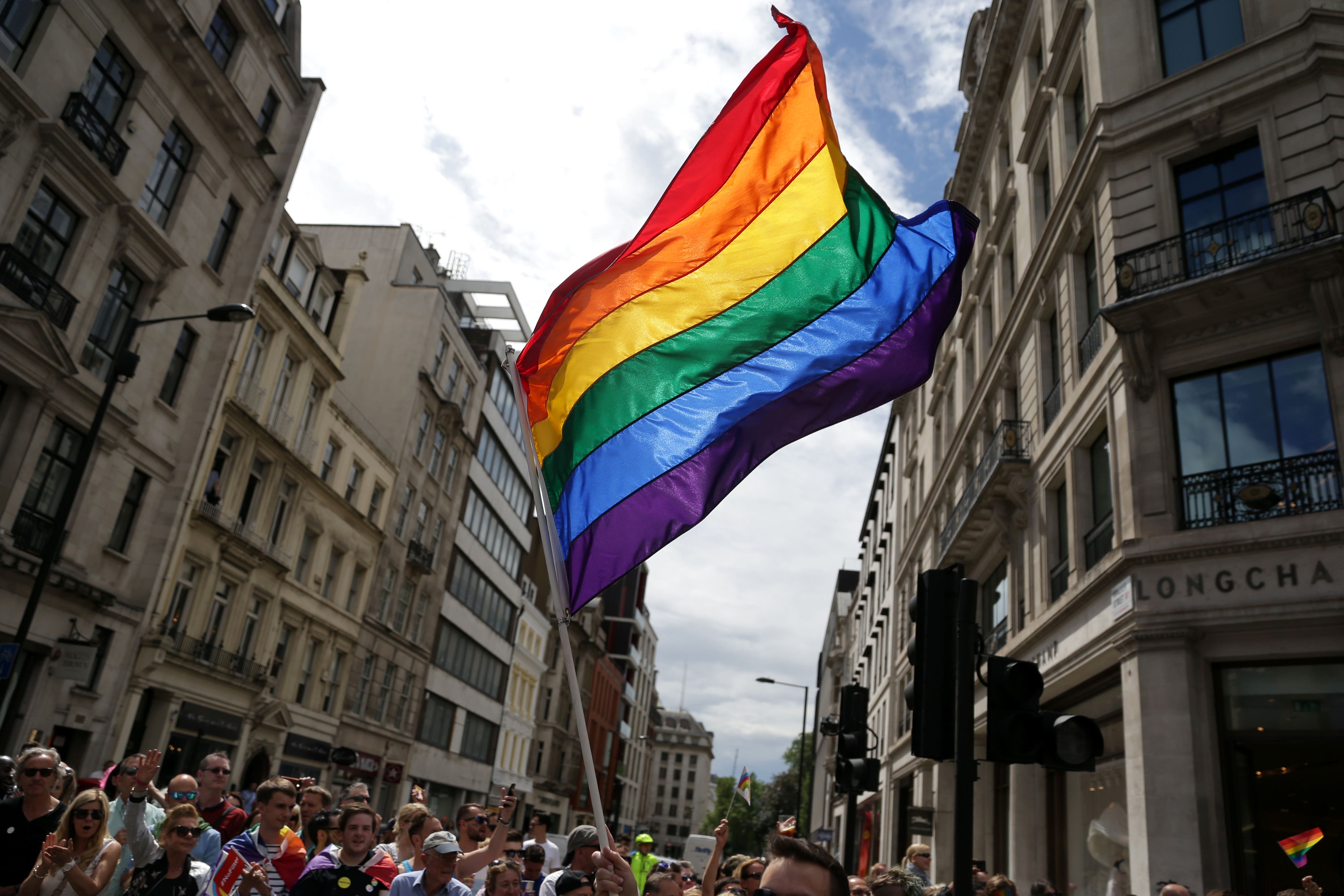I didn’t come out until my twenties – gay people shouldn’t live in fear
The issues affecting young LGBT+ people today, and trans people in particular, are more complicated than when I was coming out, says Wes Streeting


I can’t remember when I first realised that I was gay, but I do remember how hard I tried not to be gay.
For years I buried who I was and how I really felt. Every time I felt gay, I felt afraid. Afraid of my feelings; afraid that I would be rejected by my family and friends; afraid that being gay would affect my future; afraid that my life at school would be harder than it already was.
I went to an all-boys inner-city state school in the centre of London. It was tough. I had been on the receiving end of homophobic slurs from my first year at the age of 11. I’d arrived there with my best friend from primary school. We were inseparable and our friendship made us a target for bullying.
I was at secondary school in the 1990s. Section 28, the draconian Conservative law that effectively prevented schools from discussing homosexuality, let alone supporting pupils who might be gay, was in full chilling effect.
My fears about my future weren’t irrational. When I joined the school’s sixth form, I was told by an openly gay teacher that he had heard another member of staff telling colleagues that I had been passed over for the role of head prefect because I wouldn’t be a good role model because I was gay. It was a devastating blow. My worst fears about what being gay would mean for my future were confirmed.
I was humiliated and hurt, but I was also completely enraged. I hadn’t even admitted my sexuality to myself. In any case, I knew discrimination when I saw it. The whole episode confirmed to my teenage self that being gay would be an obstacle to getting on.
Twenty years have passed since I first came out. I remember it like it was yesterday. I had been on a night out with some friends at university, including a guy I had met through our involvement in the students’ union. I knew I had a crush on him for a while, but it wasn’t until that night that I finally plucked up the courage, probably aided by more than a few drinks, to say something. The night ended with a kiss and a commitment to talk the following day. I went to bed that night in floods of tears, overwhelmed by all the anxieties that I had been living with until that point.
When I woke up the next morning my head was pounding – from the hangover and all the tears. It took a few seconds to orientate myself and then it hit me. A feeling I had never felt before. One of the most powerful feelings I had ever felt in my life: liberation.
I was smiling. I couldn’t stop smiling. Then laughing. It was the uncontrollable laughter of relief. As I looked in the mirror, I finally recognised the person staring back at me.
Being gay isn’t a choice but I had spent so many years choosing not to be gay. I hadn’t realised how truly exhausting it had been. Self-denial can be powerful but living a lie is energy intensive. I felt as if the weight of the world had been lifted from my shoulders.
My friends could not have been more supportive. Having grown up on a council estate in London’s East End, it is something of an irony that the first place that I had felt accepted and truly able to be myself was at Cambridge University, where people from backgrounds like mine often worry about whether they’ll fit in.
I’ve learned in the 20 years since that coming out is a process, not an event. It wasn’t until a few years later that I finally plucked up the courage to tell my parents, whose reactions were also supportive, and I find myself still having to “come out” today.
Throughout most of that time, I’ve seen changes for the better. The Labour government from 1997 delivered the biggest advances in LGBT+ equality in history: abolishing Section 28, outlawing discrimination in goods and services, ending the ban on gay people serving in the military, introducing same-sex adoption rights, passing the Gender Recognition Act and introducing the landmark Equality Act. As they changed laws, they changed hearts and minds. Things really did get better.
For a while, that change looked set to last. Although a majority of Conservative MPs opposed equal marriage rights, the fact that they had been introduced by David Cameron’s government with huge cross-party support was important.
Today, that consensus looks fragile at best. We have a government, and a prime minister, who see an opportunity to use LGBT+ equality as a “wedge issue” in an ugly culture war. Meanwhile, hate crimes against LGBT+ people are on the rise once again.
The issues affecting young LGBT+ people today, and trans people in particular, are more complicated than when I was coming out. They demand leadership that handles them with care and sensitivity, rather than as a punchline or a way to score cheap headlines.
That’s why Pride is powerful. It is a celebration of the diversity of the LGBT+ community and our hard-won rights. But it is also a protest against the reactionary forces that would happily turn the clock back. We won’t let them.
Wes Streeting’s memoir ‘One Boy, Two Bills and a Fry Up’ will be published on 29 June by Hodder & Stoughton






Join our commenting forum
Join thought-provoking conversations, follow other Independent readers and see their replies
Comments